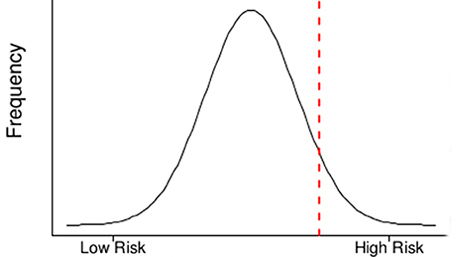
05/01/2024
Hot Topics of the Day are picked by experts to capture the latest information and publications on public health genomics and precision health for various diseases and health topics. Sources include published scientific literature, reviews, blogs and popular press articles.
Sign up MyPHGKB to receive the daily hot topic email alert.
Archived Hot Topics of the Day By Date
The FDA and Gene Therapy for Duchenne Muscular Dystrophy
From the article: " DMD is the largest human gene and has 79 exons. This large size creates issues for gene therapies, but also opportunities, because shortened forms of dystrophin can have some ability to preserve muscle function, although less than the full-length dystrophin protein. A less severe and clinically variable form of muscular dystrophy, Becker muscular dystrophy, is due to alterations in DMD that result in variable levels of expression (5%-50% of normal) of a shortened form of dystrophin."
From the abstract: " Cerebral palsy (CP) is the most common motor disability in children. To ascertain the role of major genetic variants in the etiology of CP, we conducted exome sequencing on a large-scale cohort with clinical manifestations of CP. The study cohort comprised 505 girls and 1,073 boys. Utilizing the current gold standard in genetic diagnostics, 387 of these 1,578 children (24.5%) received genetic diagnoses. We identified 412 pathogenic and likely pathogenic (P/LP) variants across 219 genes associated with neurodevelopmental disorders, and 59?P/LP copy number variants. The genetic diagnostic rate of children with CP labeled at birth with perinatal asphyxia was higher than the rate in children without asphyxia."
Genetic Research within Indigenous Communities: Engagement Opportunities and Pathways Forward
From the abstract: " Against a historical backdrop of researchers who violated trust through lack of benefit sharing, transparency, and engagement, efforts are underway to develop better approaches for genetic and genomic research with Indigenous communities. To increase engagement, there is a need to understand factors that impact researcher and community collaborations. This study aimed to understand the barriers, challenges, and facilitators of Indigenous Peoples in the US participating in genetic research."
From the abstract: "The differential performance of polygenic risk scores (PRSs) by group is one of the major ethical barriers to their clinical use. It is also one of the main practical challenges for any implementation effort. The social repercussions of how people are grouped in PRS research must be considered in communications with research participants, including return of results. Here, we outline the decisions faced and choices made by a large multi-site clinical implementation study returning PRSs to diverse participants in handling this issue of differential performance. "
Disclaimer: Articles listed in Hot Topics of the Day are selected by Public Health Genomics Branch to provide current awareness of the scientific literature and news. Inclusion in the update does not necessarily represent the views of the Centers for Disease Control and Prevention nor does it imply endorsement of the article's methods or findings. CDC and DHHS assume no responsibility for the factual accuracy of the items presented. The selection, omission, or content of items does not imply any endorsement or other position taken by CDC or DHHS. Opinion, findings and conclusions expressed by the original authors of items included in the Clips, or persons quoted therein, are strictly their own and are in no way meant to represent the opinion or views of CDC or DHHS. References to publications, news sources, and non-CDC Websites are provided solely for informational purposes and do not imply endorsement by CDC or DHHS.
- Page last reviewed:Feb 1, 2024
- Page last updated:May 14, 2024
- Content source:





